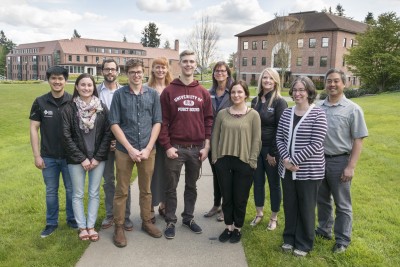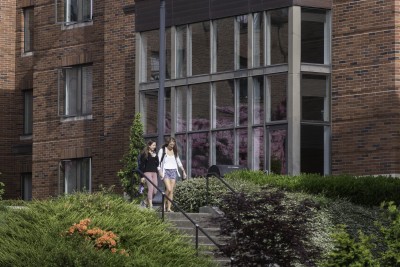Puget Sound Energy and Independent Colleges of Washington back an energy efficiency project that uses “citizen science”
TACOMA, Wash. – This is the year for something different in a decade-long research partnership between Puget Sound Energy (PSE) and the state’s college students.
Each year the electric and gas utility and Independent Colleges of Washington (ICW) select an innovative student research project that explores ways to use our state’s energy resources more efficiently. In the past the projects chosen for funding—from competing entries by students from ICW member colleges—have been about engineering and science research.
This year a University of Puget Sound student team won the partners over with a research proposal that is all about the “human” side of energy consumption.
“It’s exciting,” said Kris Gonzales, ICW director of development. “There’s some good marketing and business and data components to this student project that complement the nitty-gritty research.”
The team of four Puget Sound students, led by Assistant Professor Amy Fisher, in the Science, Technology, and Society Program, and and Professor Lynnette Claire, in business and leadership, will use a “citizen science” and social media marketing approach to find ways to reduce hot water use at the 12 campus residence halls and eight Greek Life houses. Their strategy includes analyzing the past and present hot water use, soliciting students to collect and analyze their own energy data, surveys and focus groups to probe student habits and thinking, and the creation of a marketing strategy that will help students overcome real or perceived obstacles to energy conservation.
“We’re excited PSE mentors will get a chance to engage with the students throughout the project,” said Shar Kegley, PSE’s outreach coordinator for the project. “Our hope is that energy efficiency is a practice that can be achieved throughout the campus and one that students can take with them even once they graduate.” If the project is a success, it could provide a model for other campuses, she added.
Puget Sound Energy is contributing $10,000 toward the work, while University of Puget Sound is setting a new precedent in the partnership by also contributing another $4,000. For PSE, energy efficiency is both a community service to help customers manage their costs and the least expensive way to feed the region’s growing energy needs, explained Will Chin, PSE energy efficiency outreach manager.
The student research team includes Maya Bittmann ’19 (major: science, technology, and society), Matthew Gulick ’18 (English; environmental policy and decision making), Bjorn Hoffman ’18 (business and leadership), and Shelby Kantner ’18 (science, technology, and society).
After the data collection, the researchers will devise a marketing plan and pilot it in six residence halls in fall 2017, using the other six halls as controls. They will then compare the weekly energy data collected during the first month—while the marketing campaign is underway—as well as for the month and a half following—to see what behavior changes stick— with data collected during the same periods in 2016. The results will be shared with campus and published in a research journal.
Like many U.S. campuses, Puget Sound has tried in the past to reduce energy use by promoting competitions between residence halls, such as the 2016 Battle of the Bulbs. However despite the allure of prizes such as a zero-waste pizza party for the winners, student behavior does not often change on a longer-term basis, researchers have found.
It is hoped this experiment will be more effective by involving student residents in the self-auditing of their own energy use, so they have a clear awareness of their habits and what effect these have, and by helping them set and maintain reasonable energy-use targets.
The project, supported by Puget Sound’s Sustainability Services and Office of the Associate Deans, is one of many efforts that are part of Puget Sound’s “experiential learning” initiative. This “high-impact” learning puts students to work in real-world settings or involves them in hands-on campus projects, with time set aside to reflect upon how such projects align with their academic learning.
Photos on page: From top right: Thomas Hall, a residential living and learning hall; the student researchers, faculty advisers, and representatives from Puget Sound Energy and Independent Colleges of Washington; Trimble Hall, residential and events hall (photos by Ross Mulhausen, University of Puget Sound).
Tweet this: Hot water! How much do you REALLY need? New student research on #energyefficiency @univpugetsound w/ @PSETalk @icw http://bit.ly/2qajMLR
Follow us on Twitter! twitter.com/univpugetsound




